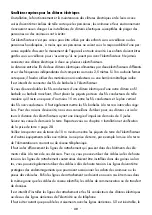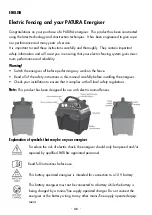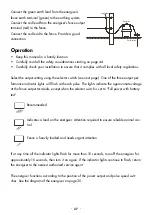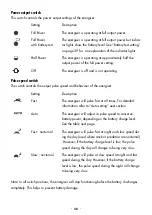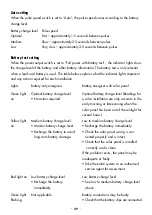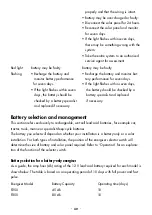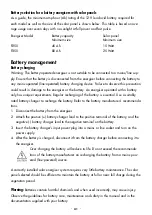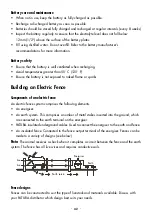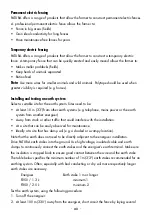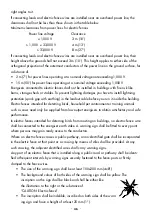
Permanent electric fencing
PATURA offers a range of products that allow the farmer to construct permanent electric fences.
A professional permanent electric fence allows the farmer to:
• Fence in big areas (fields)
• Gain ideal conductivity for long fences
• Have maintenance-free fences for years
Temporary electric fencing
PATURA offers a range of products that allow the farmer to construct a temporary electric
fence. A temporary fence that can be quickly erected and easily moved allows the farmer to:
• Make smaller paddocks (fields)
• Keep herds of animals separated
• Ration feed
Note:
Use more wires for smaller animals and wild animals. Polytape should be used when
greater visibility is required (e.g. horses).
Installing and testing an earth system
Select a suitable site for the earth system. Sites need to be:
• At least 10 m (33’) from other earth systems (e.g. telephone, mains power or the earth
system from another energiser).
• Away from stock or other traffic that could interfere with the installation.
• At a site that can be easily observed for maintenance.
• Ideally at a site that has damp soil (e.g. a shaded or swampy location).
Note that the earth does not need to be directly adjacent to the energiser installation.
Drive PATURA earth stakes into the ground. Use high-voltage, insulated cable and earth
clamps to continuously connect the earth stakes and the energiser’s earth terminal. Make sure
the insulation is stripped back to ensure good contact between the wire and the earth stake.
The table below specifies the minimum number of 1m (3’3”) earth stakes recommended for an
earthing system. Often, especially with bad conducting or dry soil more respectively longer
earth stakes are necessary.
Energiser
Earth stake 1 m or longer
P250 / 1.3 J:
minimum 1
P350 / 2.5 J:
minimum 2
Test the earth system, using the following procedure:
1. Turn off the energiser.
2. At least 100 m (330’) away from the energiser, short circuit the fence by laying several
- 43 -


